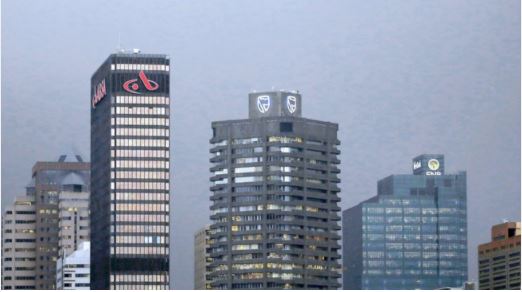Banks have been hit hard by the Covid-19 pandemic, with combined headline earnings falling 65.5 percent in the first half of this year compared with the same period last year, as consumers struggle to make monthly payments and grow their incomes.
CAPE TOWN – Banks have been hit hard by the Covid-19 pandemic, with combined headline earnings falling 65.5 percent in the first half of this year compared with the same period last year, as consumers struggle to make monthly payments and grow their incomes.
This was according to a report on the country's banks by professional services and accounting group PwC, which said that, for now, any attempt to predict when and how economies – and bank profitability – might return to pre-crisis levels, “is not an exercise in forecasting but conjecture”.
PwC Africa banking and capital markets partner Rivaan Roopnarain said on Friday that in spite of the earnings decline, the recent financial results of the banks reflect balance sheet strength, resilient operations and trusted banking brands that were able to withstand severe economic shocks.
He said PwC believed the banks that would best survive the crisis would be those best able to deal with risks to their profitability and the rise in non-performing loans, and that reformulated their strategy to include learnings from the Covid-19 crisis.
Strategy based on customer-centricity, responsiveness to demographic shifts and changing customer expectations while keeping pace with technology changes, would best provide a foundation for success for the banks, Roopnarain said in the report.
Old Mutual Investment Group’s head of MacroSolutions, Peter Brooke, said in a statement the banks’ first-half results were not as bad as they appeared.
He said despite a cumulative R31 billion provision taken out for expected impairments, the major banks reported a profit of R11bn.
“To deliver R11bn in the first half with no dividends means there’s even more of an equity buffer, and we need not worry about our banking system going under. This removes a potential systemic risk, as coming into this crisis we knew the banks were well capitalised, but there was still a risk of losses,” said Brooke.
He said Old Mutual Investment Group was, therefore, overweight in banks in anticipation of conditions and performance improving from here on out.
“The new accounting standards force bank management to bring forward their bad debt cycle and concentrate it. This means from 2021 onwards, provisions will decrease and profits will increase which, in our language, means we have an improving theme.”
Vestact Asset Management director Byron Lotter said the share prices of banks generally, in South Africa and around the world, were sensitive to interest rates and the economies in which they operated.
And in spite of being sound businesses and doing everything right, such as providing digital channels for retail banking, banks generally struggled to achieve high valuations, and typically traded at price:earnings ratios of 12 to 13, although there were outliers.
In South Africa, the outcome of low interest rates on the banks still needed to be seen as, on one hand, it generated additional business, such as for home loans, while on the other hand the banks earned less interest on loans. Banks currently did not have a big appetite for risk.
He said a turnaround of the banks’ earnings positions would depend on whether the economy turned around.
Roopnarain said the major banks’ results to June 30 reflected the impact of “the profound public health, social and economic strain brought about by the Covid-19 pandemic and resulting stresses to the operating environment”.
He said the major banks had entered the crisis with resilient balance sheets, sound capital and liquidity levels and strong franchises, which had helped to “anchor the course” as they swiftly turned attention to ensuring the safety of their workforces, maintaining cost discipline, operational and balance sheet resilience, and providing colleague, community and customer support.
Credit provisioning levels had soared against expectations for rising volumes of distressed and non-performing loans, he said.
PwC’s research suggested that South Africa’s economic output could take between two and seven years to return to last year's levels.





